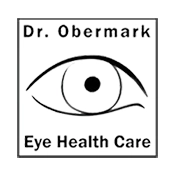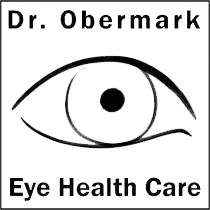Baby's First Eye Exam

Even if your baby shows no signs of vision problems, scheduling a comprehensive infant eye exam with an optometrist around six months of age is highly recommended. At this stage, a skilled eye doctor in Poplar Bluff MO and Sikeston MO can evaluate your child’s visual development and identify any early concerns. The exam will screen for nearsightedness, farsightedness, astigmatism, and assess how well the eyes are aligned and working together. The optometrist will also check for signs of eye disease or abnormalities.
Although significant vision issues in infants are uncommon, early detection is essential. Identifying problems early increases the chances of successful treatment and supports healthy visual and neurological development.
Infant Vision Development Milestones
A newborn’s visual system is not fully developed at birth. Their ability to see and process visual information improves rapidly in the first two years of life. Monitoring these developmental milestones can help ensure your baby’s vision is progressing normally.
Birth to 4 Months
- Early Visual Focus: Newborns see best at a range of 8–10 inches, often focusing on a caregiver’s face.
- Coordination Begins: In the first few months, babies begin learning how to move their eyes together.
- Eye Movements: It’s normal for a baby’s eyes to appear slightly uncoordinated during the early weeks. However, consistent misalignment could be a concern.
- Tracking Objects: By about three months, most babies can follow moving objects and begin reaching toward them.
5 to 8 Months
- Improved Depth Perception: Babies begin developing three-dimensional vision around five months, helping them judge distance.
- Color Recognition: Color vision becomes more refined, approaching adult levels by five months.
- Crawling and Coordination: As crawling begins, visual-motor skills develop rapidly. Babies who spend more time crawling tend to gain better visual coordination.
9 to 12 Months
- Fine Motor Skills: Around nine months, babies begin standing and grasping objects between their thumb and finger.
- Spatial Awareness: By twelve months, most babies can crawl or walk, judge distances, and visually track moving items more accurately.
1 to 2 Years
- Refined Coordination: Depth perception and hand-eye coordination are well established by age two.
- Visual Learning: Toddlers start identifying familiar objects and pictures, recognizing patterns, and engaging in visual play. Activities like drawing and stacking blocks support both vision and cognitive development.
Tracking these milestones can give parents peace of mind and provide opportunities to identify potential delays early. If you have any concerns about your child’s visual progress, a pediatric eye exam can offer important answers.
Signs Your Infant May Have a Vision Problem
While most babies develop normal visual abilities, parents should watch for signs that may indicate an issue. Common symptoms of early vision concerns include:
- Excessive tearing, possibly from blocked tear ducts
- Red or crusted eyelids, which could signal infection
- Constant eye turning inward or outward
- Extreme sensitivity to light, possibly related to high eye pressure
- A white or cloudy pupil, which could indicate a more serious condition
If you notice any of these signs, contact an optometrist promptly to rule out or address potential concerns.
How Parents Can Support Healthy Visual Development
There are many ways parents can encourage healthy vision development in infants. These age-appropriate activities can help strengthen your baby’s eyes, visual skills, and coordination:
Birth to 4 Months
- Use a soft nightlight in the nursery
- Alternate your baby’s head position during sleep and feedings
- Offer simple, high-contrast toys within 8–12 inches
- Engage with your baby by talking while moving around the room
5 to 8 Months
- Introduce colorful mobiles and interactive toys
- Encourage tummy time and floor play to build tracking skills
- Provide lightweight blocks or toys to hold and shake
- Use simple games like “pat-a-cake” to develop motor skills
9 to 12 Months
- Play hide-and-seek games with toys or your face
- Name familiar objects during play to support recognition
- Promote crawling to develop spatial awareness and tracking
- Use stackable toys and large board books for visual stimulation
1 to 2 Years
- Roll balls back and forth to improve tracking and coordination
- Offer building blocks and objects of varying sizes
- Read aloud from picture books to build early visual literacy
- Encourage drawing with safe crayons to develop fine motor skills
These activities, combined with regular eye exams, help ensure your child’s visual system is developing on schedule.
The Importance of Early Eye Exams: Introducing InfantSEE®
To make early eye care more accessible, many optometrists participate in InfantSEE®, a public health program offered through Optometry Cares – The AOA Foundation. The program provides no-cost, comprehensive eye assessments for infants between 6 and 12 months of age, regardless of income or insurance.
While vision screenings during wellness checks may seem sufficient, studies show that traditional screenings can miss up to one-third of children with underlying eye or vision problems. The InfantSEE® program helps bridge this gap with more thorough, specialized exams conducted by trained optometrists.
During an InfantSEE® visit, the optometrist will:
- Assess for early signs of nearsightedness, farsightedness, or astigmatism
- Evaluate eye alignment and coordination
- Examine the overall health of the eyes
- Review patient and family medical history for hereditary risk factors
This early check-up can make a significant difference in a child’s ability to develop essential visual skills for learning, movement, and interaction.
Schedule an Infant Eye Exam
Vision plays a critical role in your child’s development, from learning to walk to recognizing faces and exploring the world. A comprehensive eye exam during infancy helps ensure that your child is seeing clearly and developing properly. If you’re ready to support your baby’s healthy visual journey, contact Dr. Obermark Eye Health Care today to schedule an appointment in Poplar Bluff MO or Sikeston MO.
Early eye care builds a strong foundation for lifelong vision health—and we’re here to help you every step of the way.



